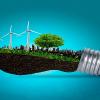News
Displaying Results 26 - 37 of 37
UNECE is deepening its support to help countries of the region capitalize on innovation to recover from the pandemic and realize the ambitious vision of the 2030 Agenda.
The UNECE Innovation for Sustainable Development Review (I4SDR) of Uzbekistan, which is currently underway, will set out…
By Ms. Olga Algayerova, UN Under-Secretary-General and Executive Secretary of UNECE, and Ms. Elisabete Quintas da Silva, Head of Department, Sustainable and Efficient Use of Resources Operational Programme, Government of Portugal, and Chair of the UNECE Committee on Environmental Policy.
This…
Countries in the Caucasus, Central Asia, Eastern and South-Eastern Europe are stepping up efforts for their sustainable energy transition with ambitious plans and policies, aiming to significantly cut CO2 emissions and advance implementation of the Sustainable Development Goals (SDGs) and the Paris…
Morocco has requested UNECE to review its environmental performance for a second time. To provide the groundwork for the review, a team of UNECE and international experts will participate in a country hybrid mission from December 2020 to February 2021, first meeting national experts by virtual…
The COVID-19 pandemic has caused wide-ranging effects on human health, security and economic activity, which have significantly impacted industrial safety.
The eleventh meeting of the Conference of the Parties to UNECE’s Convention on the Transboundary Effects of Industrial Accidents (Industrial…
Countries in the pan-European region will continue to benefit from the recommendations of environmental performance reviews (EPRs) beyond 2022, following the adoption of the fourth cycle of EPRs by UNECE’s Committee on Environmental Policy at its 26th session, held on 9 and 10 November.
In…
Uzbekistan is making significant efforts on key environmental issues, including tackling the consequences of the Aral Sea disaster and reforming policies on municipal waste management, biodiversity conservation and green economy. However, the country must step up measures to improve water…
In 2014, Austria and France launched The Partnership on Cycling Promotion under the Transport, Health and Environment Pan-European Programme (THE PEP), a programme jointly serviced by UNECE (bringing together its work on environment and sustainable transport) and the WHO Regional Office for Europe…
The diesel scandal in Europe has made us aware of the potential trade-offs between different fields of policy. While trying to reduce greenhouse gas emissions, policies to subsidize diesel cars were made without taking into account that diesel emissions have serious negative impacts on air quality…
Marking two hundred years since the invention of the Draisine, an ancestor of the bicycle, in Mannheim, Germany, the city will host two events this month on the theme of active mobility: the International Cycling Conference and a Transport, Health and Environment Pan-European Programme (THE PEP)…
While others debate the merits of green economy, the Transport, Health and Environment Pan-European Programme (THE PEP) demonstrated once again its hands-on approach by hosting a green economy discussion that focused not on whether to implement green economy, but how to do it.
The…
Policies that support cycling not only contribute to the fight against air pollution and greenhouse gases and boost health, but can also go a long way in creating jobs as part of the transition to a Green Economy, participants heard at a side event in Batumi.
An estimated 435,000…





